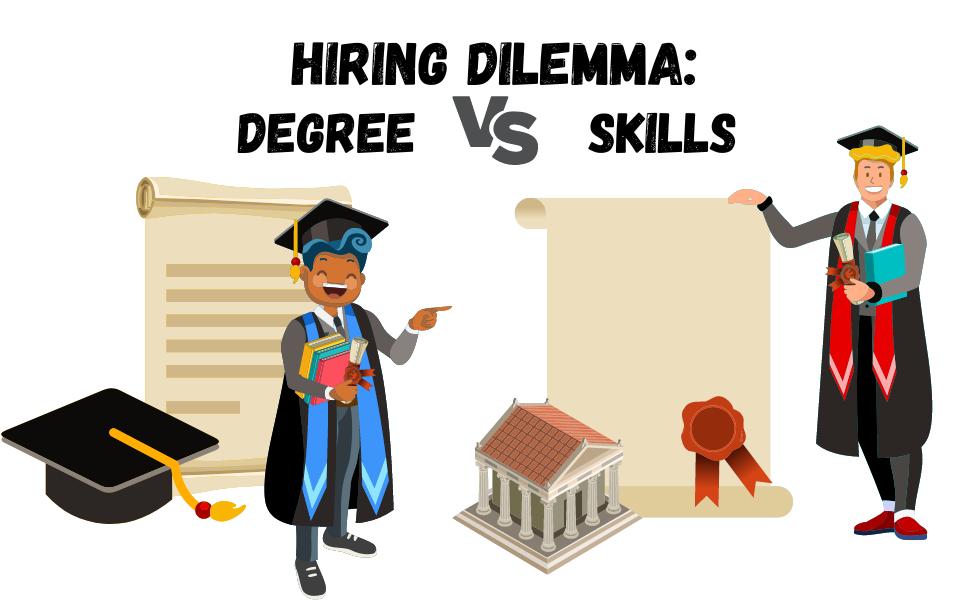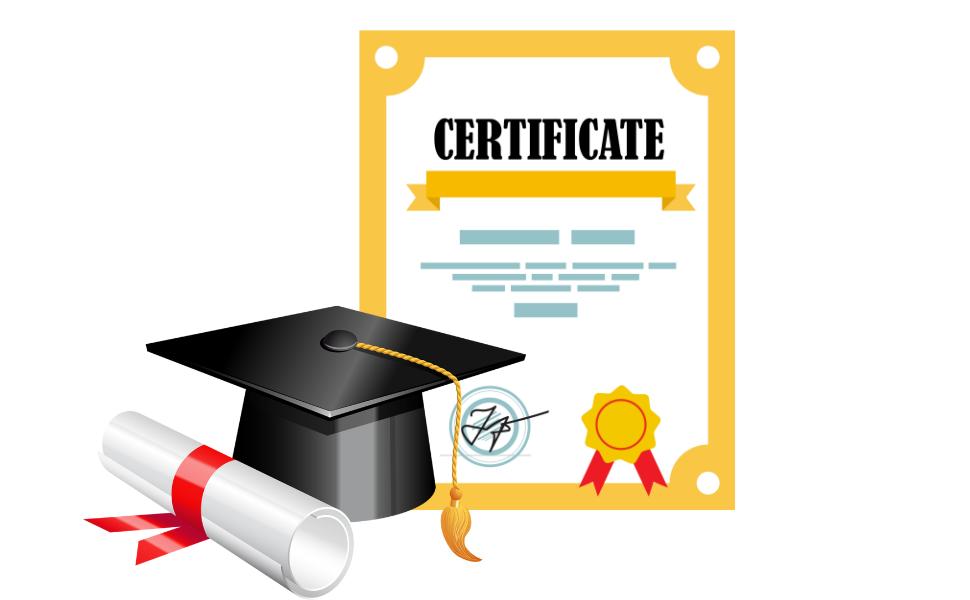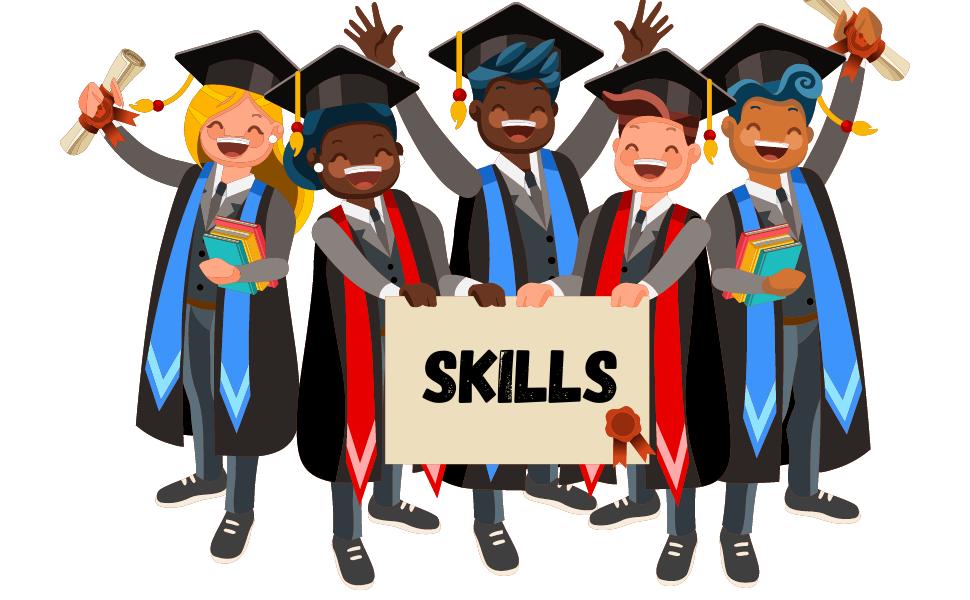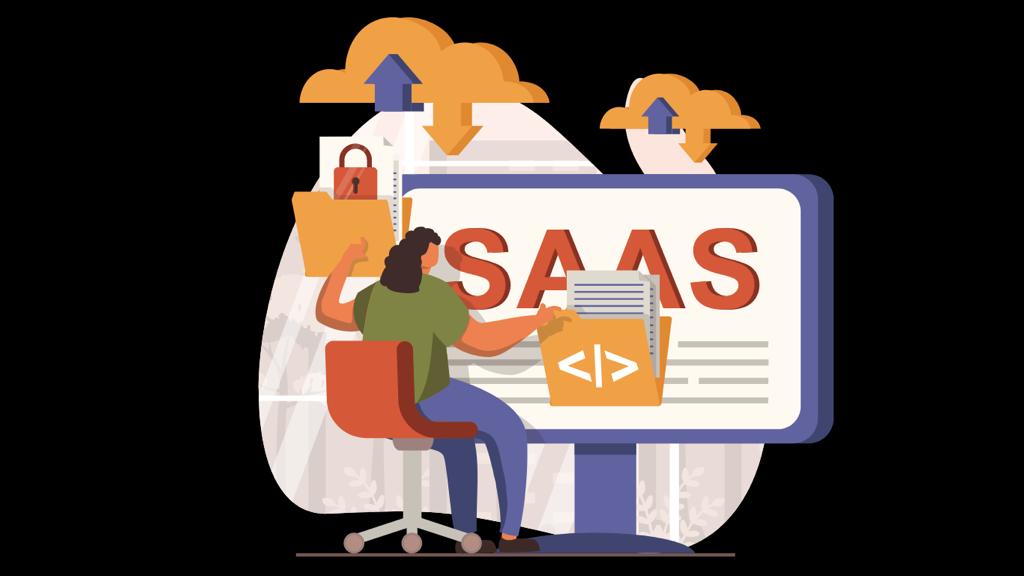
Introduction
Many people discuss having extensive college degrees and other things. Without a doubt, a degree is necessary for employment, but it is irrelevant if a degree alone will allow us to advance in life. The answer is “no,” or more appropriately, a VERY BIG NO. Degrees only serve as a doorway to any employment. Even those with significant degrees often struggle to find work. Your capacity for progress ultimately hinges on your abilities, Degree vs Skills.
The two faces of the same coin are education and expertise. A degree and a skill are both necessary for success in the race of life. A skill without a degree would be just as meaningless as the other way around. For there to be a survival of the fittest, both must coexist. A degree is nothing more than officially recognising an individual’s expertise. Not every person with the skill will succeed in getting the degree. In a similar vein, not all people with degrees are necessarily skilled. The organisation, the type of position, etc., determine the degree or skill requirements. Which criterion, from a broad perspective, is more important: Degree vs Skills?
Even while degrees are significant in various professions, a person’s skill is ultimately what determines their level of success. Let’s clarify it:
- Without a medical degree, you cannot practise any type of medicine. Only skilled doctors draw more patients than their peers, though.
- You cannot practise law and obtain a licence from the bar council. Only a few advocates are more successful than their colleagues in this area, as you will also discover. Only those who are creative and able to think outside the box succeed.
- There are numerous additional sectors, especially the professional ones, where a professional degree is necessary. However, only individuals with superior skills are indeed successful.
1. Degree
- A degree is an official document that certifies the applicant for the position understands the job requirements and has the managerial skills necessary to carry out the position’s duties.
- A degree boosts a person’s perspective and approachability. These are crucial components of personality formation.
- A degree can enlighten and ennoble a person. To assume control of the situation or move up the success ladder, perhaps. But without a degree in hand, it might be challenging to manage these things.
- Respect and good standing are gained via education. A person is judged based on their credentials, which are demonstrated by their degree.
- A degree can provide its owner with money and respect. The greater the rank and status, the bigger the wage package and the more specialised the degree.
2. Skill
- Not every person with a degree is skilled. Instead of the degree, the ability is what aids in achieving the goal.
- Because skill is an abstract concept, it cannot be measured on pieces of paper. It is a wide spectrum that is developed within the person and fostered via repeated real-world applications.
- Success is based more on talent than education. A degree can only get you a job; it won’t help you advance without the right skill.
- The ability to attract employers, clients, and management is what rises or lowers a person. Without the expertise, the person would not be able to succeed and get the attention of their superiors.
- Although all of history’s great figures were highly skilled, they lacked formal education credentials.
3. Why skill is important.
- A skilled individual is more creative. He is capable of performing a variety of tasks since one ability breeds another. It is a maxim that is true. A talented individual will pick up new abilities more quickly than others.
- Because he is more innovative, businesses favour him, and he is paid more for the same job.
- The age of transition is currently upon us. Only skilled individuals can endure in the labour market.
4. Why a degree is important
- A person becomes more assured in his strategy and perspective as a result.
- Getting a college education can be a crucial component in personality development.
- A lack of people skills can help you become more popular, which will eventually benefit your career.
- Respect and social standing are gained through education.
- A degree can provide its owner with money and respect. The higher the rank and status, the more specialised the degree, and the greater the compensation package.

5. A professional Degree vs Skills
A professional degree helps students get ready for particular professions like teaching, medicine, and law. Depending on the profession choice, the length of the programmes offered by different schools ranges from 1 to 5 years. The emphasis of the schools’ curriculum is on giving students practical knowledge. Internships and projects relevant to their particular vocations are incorporated into these curricula. It aids in the development of the students’ resumes in addition to helping them gain practical experience.
A skill degree, on the other hand, includes all of a person’s skills. As a result, when the minimum education or qualifying criteria are waived, there are no needless barriers. By selecting candidates based on their skill level, employers can select those with the desired skills. An employer can hire individuals from a variety of demographics if they place more emphasis on the candidate’s talent level than their professional degree.
6. Hiring based on the degree.
In the past, businesses used to just look at a candidate’s degree as the most important piece of information. Based on the degrees they held, an applicant was judged to be a useful employee and qualified for the post.
The attitude of employers has, nevertheless, changed in the past. Nowadays, many organisations place a higher value on skill-based hiring than they once did on degree-based hiring.
7. Hiring based on skills.
In a skilled-based hiring process, candidates are chosen based on the talents they possess. In the recent past, skill-based recruiting has become incredibly popular in the workforce.
8. Degree vs Skill set – what is more important in life?
Which is more popular—a skill or a degree—before knowing? Let’s first clarify what they mean in actuality. A skill is the art of completing a specific set of duties. In contrast, a degree is a document that attests that the individual in question has studied a particular topic or subject.
Let’s use an example to try to better comprehend this; there are two people, A and B. While B has not studied baking but has a flawless understanding of making a cake, A has taken a diploma course in cake baking but hasn’t been actively involved in baking. Which of them do you think will get hired if they both apply for jobs at a candy company? The answer is B since, despite not having taken a course on it, he is nevertheless able to complete his duty effectively.
However, the question of why earning a degree will now arise if it serves no use will now arise. The fact that talents today outweigh grades is undeniable, yet a degree polishes your method of operation and establishes your dependability in the eyes of the company. A person who possesses a combination of the two is, therefore, more likely to succeed in their career than any of their competitors. In my opinion, talents will always hold an employer’s attention, even though a degree will help you stand out in their eyes. Therefore, the former comes out on top in this contrast of Degree vs Skills.
Get your experience.
The most popular approach for someone to improve their abilities while still pursuing their degree is through participating in an internship programme. An internship programme is merely a taster of the field you hope to pursue professionally. These programmes provide a wealth of knowledge and aid in developing an understanding of the field. Businesses now favour individuals with past industry experience over those who have just ever been voracious readers.

9. Exist any degree programmes with embedded skills?
The reply to the question is in the affirmative!
Some courses are offered as a package deal. For instance, if you want to become a programmer, many courses like Python and Data Structure teach students theoretical knowledge and practical practice. Due to the fierce competition in the labour market, there are 20 or 30 applicants for every available post today. Making the most of your degree is crucial for job seekers who want to outsmart their rivals. This can be done by highlighting your skill sets, adding information about your internship, etc.
Most university students enrol in a course outside of their area of study so they can demonstrate additional competence on their resumes while completing their degree. Coding, ethical hacking, learning a new language, taking on an internship, and working a part-time job are a few examples. This extra qualification ought to prove to be your knowledge deck’s ace. For instance, if you are fluent in English or French, you can take the DELF or IELTS exams. As a result of your knowledge of a new language, you can utilize your education and expertise outside of India.
Interdependency of Degree vs Skills
Having said that, degrees and skills are interdependent; you cannot have one without the other. Without a natural aptitude for a subject, you will never be motivated to learn more and master all the necessary abilities. You will acquire all the necessary abilities if you are passionate about your course and work hard to learn it since you will be practising and actively seeking out chances in your field. Never forget that skills are honed information that has been so thoroughly ingrained in you that it has become a part of your way of life. A degree is a chance to hone your knowledge and advance your abilities. As a result, always aim for a mixture since large corporations seek the ideal combination.
10. How can you add the appropriate skill to your degree?
Does it make sense to spend all that time and money getting a degree when you might be working, making money, and building experience instead? Do hiring managers place a high enough value on practical experience and on-the-job training to overlook a resume’s lack of a degree?
Companies are starting to feel the pain. For job opportunities, businesses are no longer searching for white-collar or blue-collar workers, but, instead, “new-collar” workers: “an individual who gains the technical and soft skills needed to work in technology jobs through atypical school courses. These employees do not hold a four-year college degree. Instead, community colleges, software boot camps, professional certifications, technical certification programmes, high school technical education, on-the-job training, and internships are used to teach new-collar workers.
Thank goodness, there are alternatives to a typical degree programme that can help you expand your knowledge and professional network. Your ability to exhibit your knowledge will be easier to prove if you have certifications. With the correct mix of skills and certifications, even school graduates today can develop a successful career without a college degree.

Conclusion
Degree vs Skills are both essential. You can tell, though, that while your talents may help you stand out, a degree is necessary to help companies shortlist you. To succeed in the competitive economy of today, it is preferable to utilise all of your resources and tools. Therefore, begin with a degree and then focus on honing your skill. Anything is possible if you put forth a little effort. If you want an answer, you should know that your skills complement your degree and that you are nothing without one. You two are the ideal candidate for every business.
If you found this blog post informative, we encourage you to continue exploring the exciting worlds of knowledge. Click here to connect with like-minded individuals through comments and dive deeper into the latest developments in these fields.




